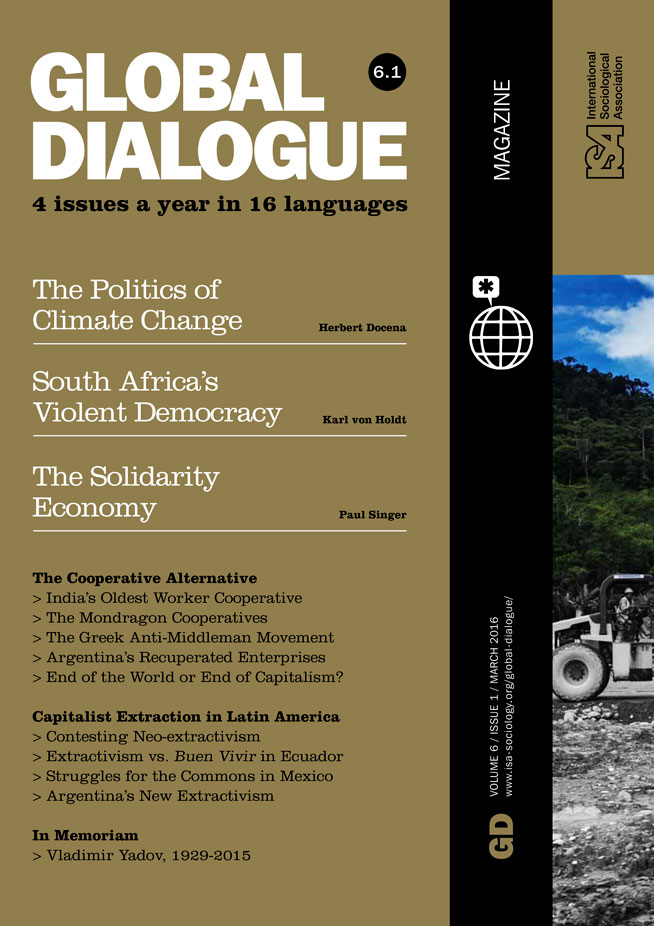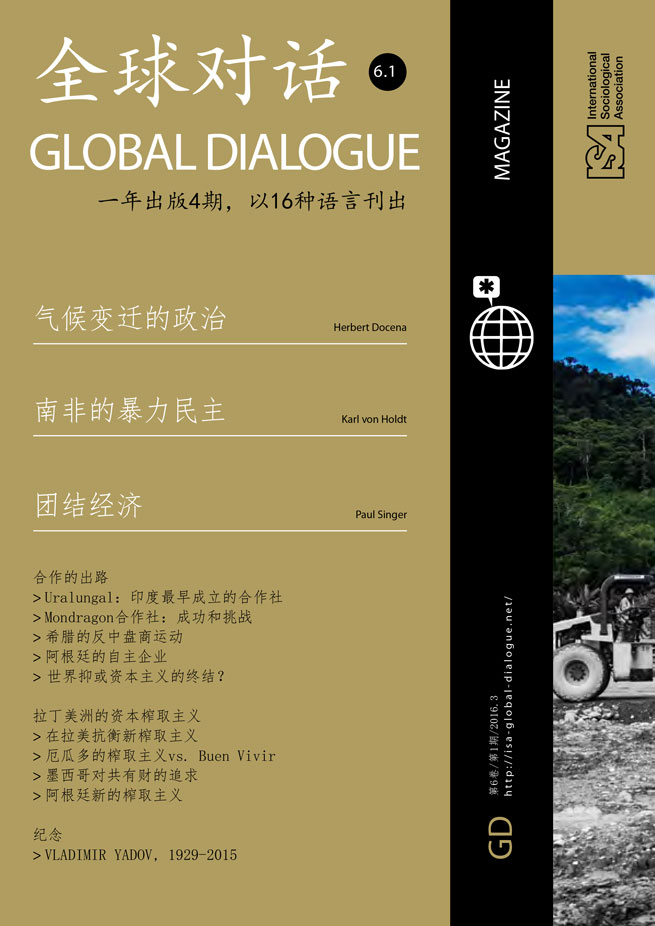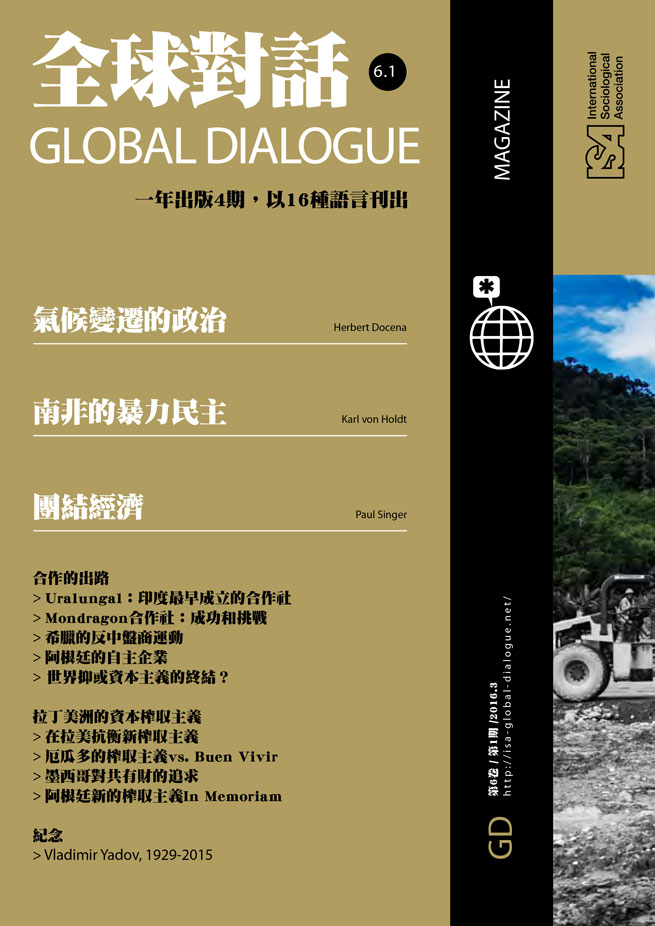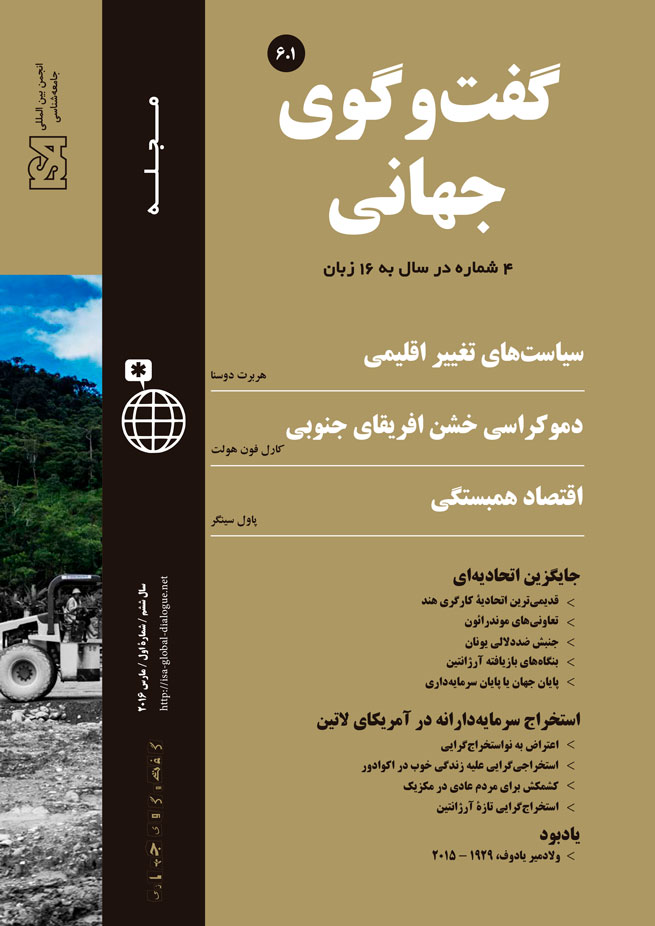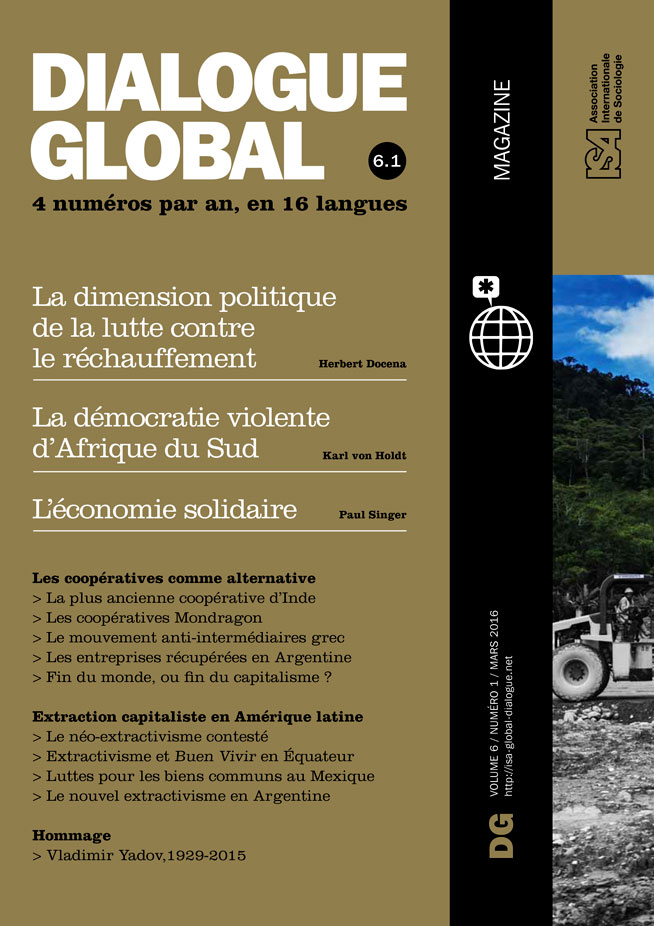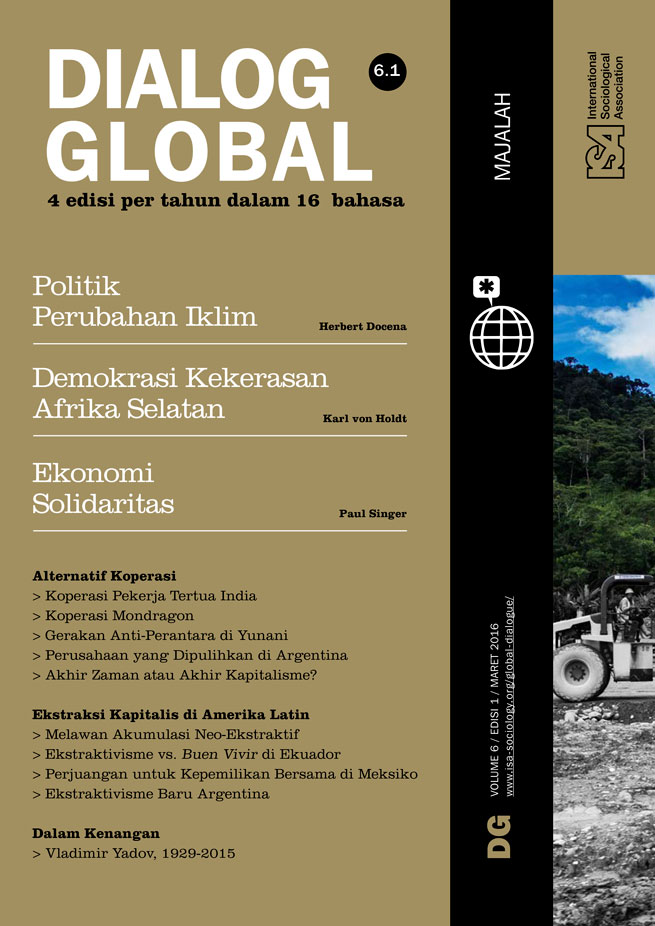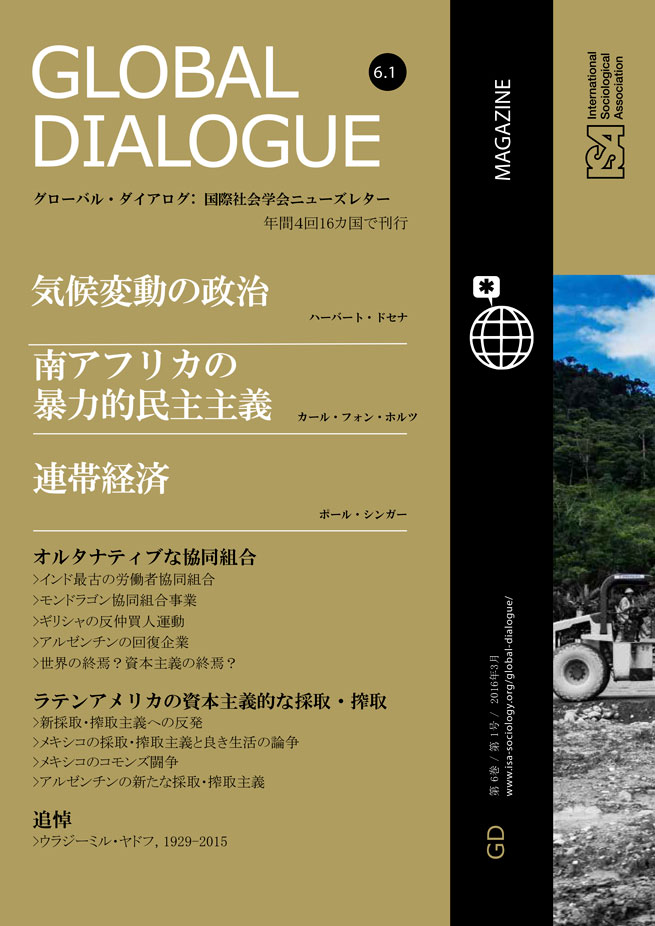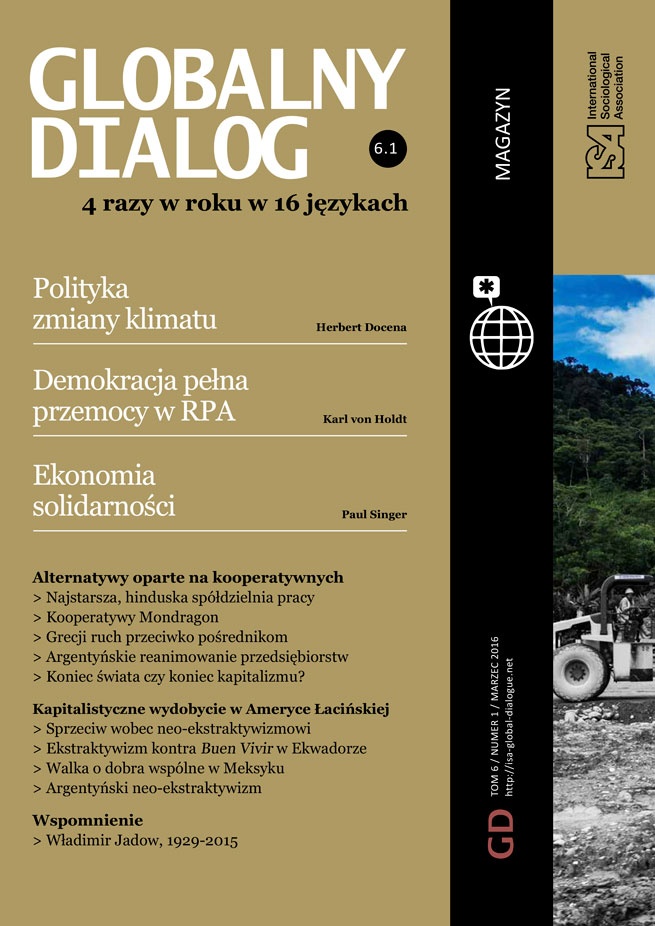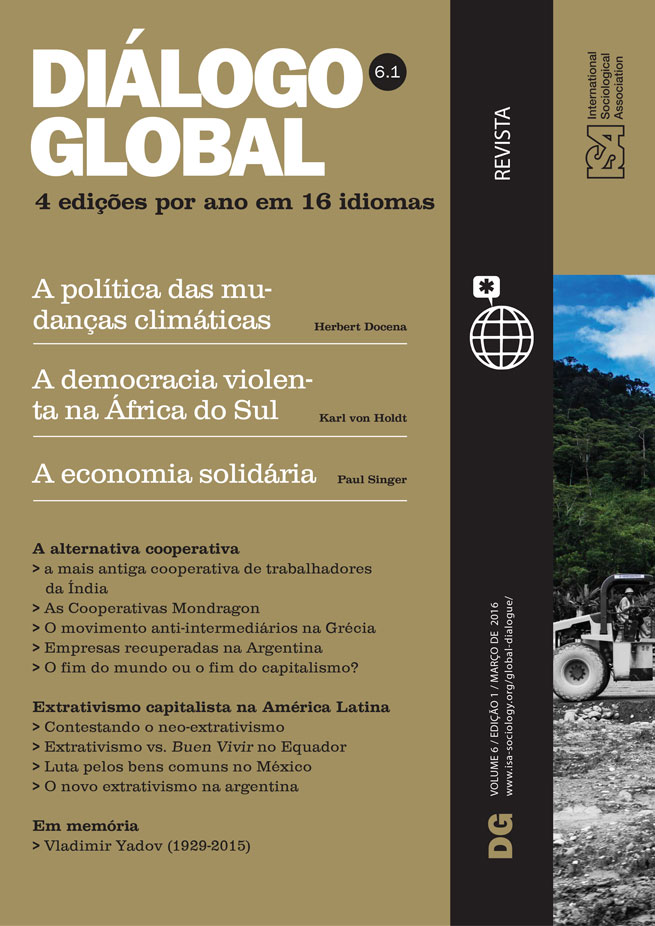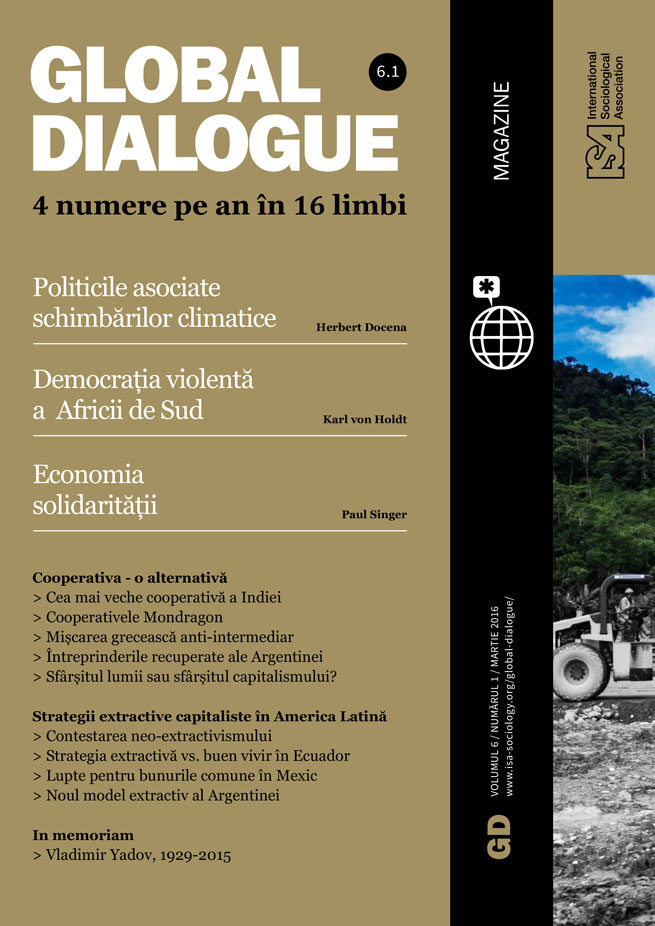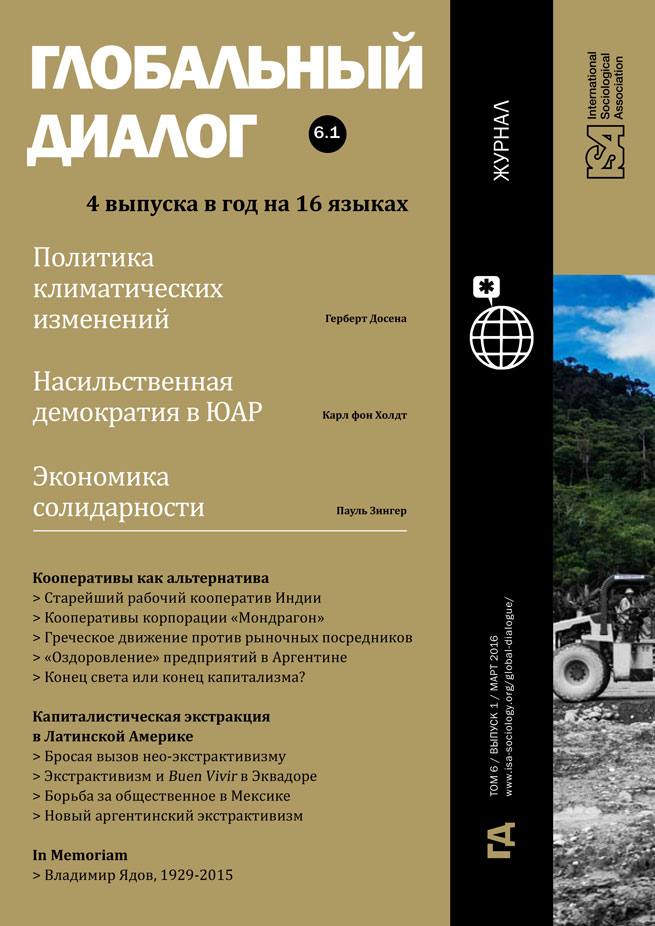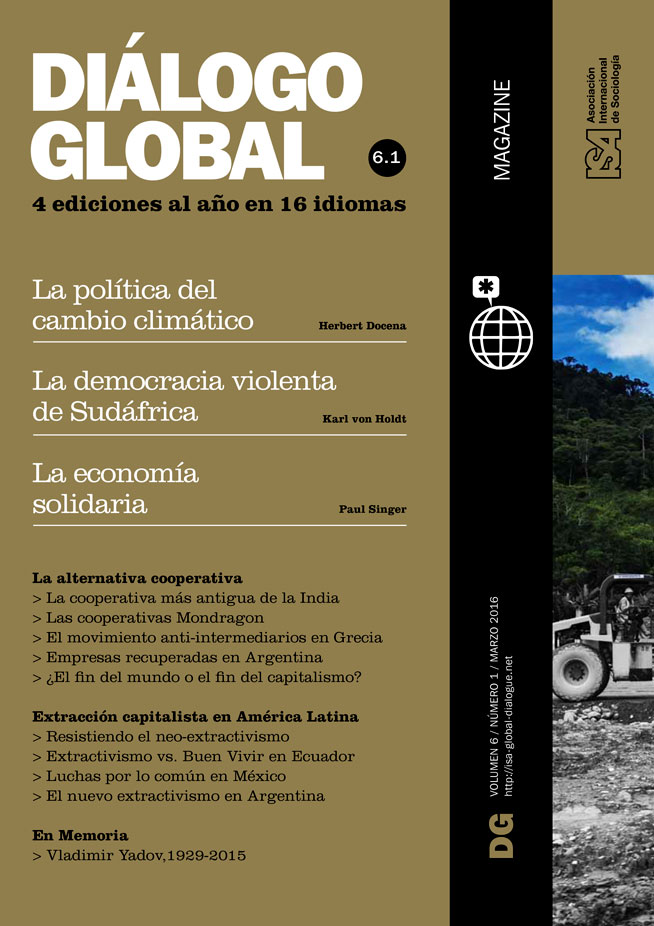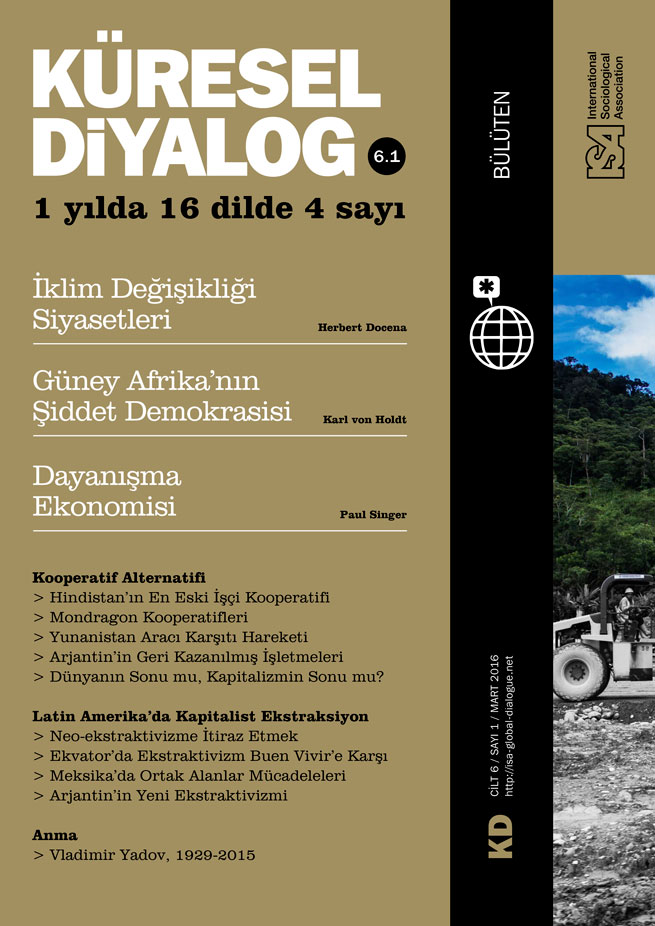The Politics of Climate Change
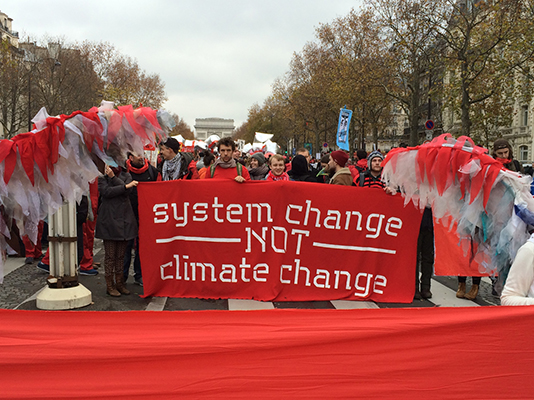
February 13, 2016
For some in the climate justice movement, the battle line in the global fight around climate change runs along the walls of the heavily fortified UN climate change summit venues: Outside, “the movement” or “the people” from different countries marching on the streets demanding “System Change Not Climate Change!”; Inside, the officials of states and corporations, fighting to keep the system unchanged. Thus, veteran activist Rebecca Solnit, writing on the eve of the latest UN climate change summit, divides “the people in the streets of Paris” from “the people in the conference rooms of Le Bourget.” She suggests that it is the former who now have “the power to change the world.”
Drawing such frontiers between “the conference rooms” and “the streets,” echoed by many others inside and outside the movement, is fundamental to understanding the tendencies in climate change politics. But it also obscures the changing and increasingly complex battle lines within both sides and prevents us from seeing how some “people in the conference rooms” try to win over “people in the streets” by proposing to change the system in order to keep it the same.
The Struggle in the Conference Rooms
Many if not most of the state officials, business executives, experts and other actors in the conference rooms have indeed been mobilizing to prevent the system from changing. Defending only their country’s competitiveness or their company’s profitability, they have constantly opposed regulating global capitalism to address climate change, and much of what they have done could indeed be considered mere “green-washing” or disaster profiteering.
But not all those in the corridors of power have necessarily been as shortsighted. Indeed, beginning in the 1970s and 1980s, one particular section of the world’s elites has actually been mobilizing to try to “change the system” – but in order to keep its capitalist essence intact. Driven to counter radical intellectuals, scientists, writers or organizers who were gaining an increasing number of adherents with their call for radical system change, or for the abolition of capitalism to solve global ecological problems, a loose and by no means unified network of elites from both developed and developing countries began assembling a coalition to advance enhanced global regulation, or reforms and concessions, to at least manage capitalism’s ecological contradictions and provide some assistance to those most affected by global warming.
In proposing “system-preserving system change”, however, these reformist elites and those they drew to their project from the classes below them, also began driving their more conservative fellow elites to counter-organize and to block their proposed reforms and concessions. Starting in the 1980s, divisions among reformists consequently began to deepen.
Faced with a more organized and more intransigent conservative opposition, some reformers, we can call them populist reformers – such as Environmental Defense Fund’s (EDF) Fredd Krupp or Senator Al Gore from the US and many other like-minded officials, executives, foundation heads, experts, or activists in other developed and developing countries – took the view that they could only secure their proposed reforms and concessions by appeasing their fellow elites and building alliances with them. To forge these alliances, they began to champion domestic and global regulatory measures that yielded to conservative demands. On the world stage, they began championing international agreements that imposed lower emissions reductions targets for developed countries, gave them more “flexibility” in achieving those targets through carbon trading and other market mechanisms, and freed them from obligations to provide significant financial and technology transfers to less developed countries.
When these concessions still failed to appease conservative resistance, they advocated giving even more concessions by pushing for the even weaker pledge-what-you-want “bottom-up” agreement in Copenhagen in 2009 – essentially the same kind of agreement that conservatives were proposing in the early 1990s and essentially the same agreement that, with a few minor modifications, governments just approved in Paris.
But other “insiders” were always – or have progressively become – more skeptical of this strategy. Frustrated that they have not made headway in their attempts to change the system, such progressive officials or members of developed- and developing-country governments, foundations, and environmentalist organizations have increasingly taken the view that they can only salvage the reformist project by allying not with conservative elites but with “the grassroots” or with “the people in the streets.”
In an open letter written in 2010 after conservatives again defeated the compromise climate legislation pushed by groups like EDF, 1Sky director (and later 350.org founder) Bill McKibben argued:
We need to redouble our investment in grassroots movement building […] We feel strongly that a long-standing and damaging underinvestment in grassroots organizing severely crippled our ability to move policy forward […] Of course this is not work that can be completed overnight – it requires years of work and deep, patient investments of time and resources.
Such arguments have become ever more resonant in reformist circles. In a widely-circulated 2013 study commissioned by the Rockefeller Family Fund to diagnose why environmentalists keep failing to pass their proposals, prominent sociologist Theda Skocpol essentially echoed McKibben and others’ criticism of “insider politics” pursued by such groups as EDF. Skocpol endorsed the recommendation to instead build “a broad popular movement.”
Reformers in the Streets
In line with this strategy, since at least the late 2000s, populist reformers have been “redoubling” their “investment” in “grassroots movement building” by spending more energy, attention, and resources on mobilizing more or less the same groups that radicals have been organizing behind their radical project.
To win over these groups, these reformers threw their weight behind concessions that radicals have long been pushing for as part of their “minimum” program. Thus, though they do not necessarily object in principle to market-based regulatory options like carbon trading, McKibben and other like-minded activists at Greenpeace and other environmentalist organizations have supported more direct, “non-market” regulations such as outright bans on fossil-fuel production that would directly benefit local fossil-fuel damaged communities – a proposal to “keep it [oil, coal, gas] in the ground” first popularized by radical anti-capitalists.
Generally, they have called for bolder, more ambitious international agreements with higher emissions reductions targets for developed countries, for doing away with carbon trading altogether or by tightening the rules governing it, and for significant financial and technology transfers to subordinate groups. Consequently, they have generally opposed the 2009 Copenhagen pledge-what-you-want “bottom-up” agreement and have been more critical than other reformists of the new Copenhagen-like agreement that was just signed in Paris.
But convinced that such bolder agreements or regulations will not be achieved by “partnering” with, or by “lobbying” corporations or governments to take “climate action,” they have broken with moderate reformists in devoting more attention towards organizing and partnering with various “outsiders” – students, workers, rural communities, and others that have been excluded from (or have excluded themselves) from insider circles – to take more confrontational action against corporations and governments.
Though he himself eschews taking anti-capitalist positions, McKibben invited a famous anti-neoliberal author and a long-time revolutionary anti-capitalist to be part of 350.org’s board. Local 350.org activists have been reaching out to and supporting community-based struggles against coal power and other dirty-energy projects not just in the North but even in countries like the Philippines.
In Paris, McKibben and other 350.org activists even organized an imitation “people’s tribunal” where they “prosecuted” giant oil corporation Exxon for funding “climate skeptics” and politicians opposed to climate action. And they collaborated closely with anarchist or anti-capitalist direct action groups in pushing, organizing, and contributing resources for a massive civil disobedience action on the last day of the summit that other more moderate reformist groups either explicitly opposed or just quietly refused to invest in.
But while they go farther than other reformers in pushing for more radical reforms, allying with radical groups, and taking more confrontational actions, populist reformers still constantly pull back from going beyond their anti-corporate/neoliberal stance towards a more explicitly anti-capitalist stance. So while McKibben and company condemned Exxon in their “people’s tribunal,” they refrained from following other activists who also organized their own “people’s tribunal” in indicting not just Exxon but all corporations and governments that contribute to “climate change” by perpetuating capitalism.
Similarly, 350.org members helped spearhead the mass civil disobedience action during the last day of the Paris summit. But, while other organizers explicitly told participants that the ones they would be confronting were the states and capitalists represented by the Arc de Triomphe and La Défense business district, the materials circulated by 350.org suggested that the principal, if not the only, targets were the fossil-fuel companies or the “bad capitalists.” And while, on the day of action itself, the relatively under-staffed and under-funded members of anarchist and other anti-capitalist groups brought and held their own small, do-it-yourself placards saying, “Unf*ck the system” or “Capitalism: c’est has been,” the better-funded members of 350.org unfurled giant 2x200 meter banners that read “Stop Climate Crimes” and “Keep it in the ground” – both of which dwarfed all other placards and banners in the action, including the central “System Change Not Climate Change!” banner in front.
The Streets Divided
Such attempts by a section of the reformist bloc to call for more antagonistic actions against conservative elites, without going so far as to actually challenge the system, have had the effect of deepening divisions among radicals. With conservatives blocking simple reforms that might ameliorate conditions in communities affected by global warming and with the populist reformers appearing to stand up to them to defend those reforms, radical networks and organizations have been split between two poles. Thus, some have chosen to forge alliances with reformers in general, or with populist reformers in particular, to at least defend or advance even just the limited reforms and concessions that conservatives have been blocking. They have since gone on to amplify the reformist discourse by echoing their lines that the climate crisis is primarily caused by the lack of global regulation of capitalism; that it can be solved by enhancing such regulation; and that the “enemies” are primarily, if not only, the fossil fuel companies or the “bad capitalists” and the “bad elites” opposing global regulation. Others have chosen to reject such alliances in the hope of defending or advancing more fundamental changes. Without completely dismissing the benefits from reformist system change, they have insisted on going beyond the reformist discourse by declaring the lack of global regulation to be itself rooted in the contradictions of capitalism; that while enhanced regulation will be an advance, only the abolition of capitalism itself will begin to solve the problem; and that the “enemies” include even the so-called “good capitalists” and “good elites” – those who are trying to “change the system” in order to keep it the same.
The battle lines therefore do not, and never did, just run between those “inside” and those “outside” the UN climate change summits; they also run across and within the conference rooms and the streets. Whether and how the “people in the streets” will build the “power to change the world” and prevail over “the people in conference rooms” will likely depend on who wins in the streets.
Herbert Docena, University of California, Berkeley, USA, and member of ISA Research Committee on Labour Movements (RC44) <herbertdocena@gmail.com>


